Space
Sign up for our newsletter
We summarize the week's scientific breakthroughs every Thursday.
-
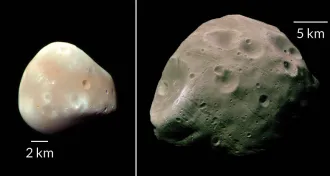 Planetary Science
Planetary ScienceMars once had many moons
Mars' moons might be the only two left of a larger family of satellites that helped them form in the wake of an asteroid collision.
-
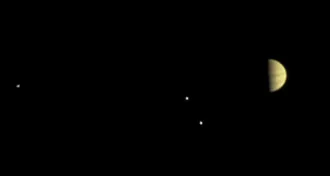 Planetary Science
Planetary ScienceJuno spacecraft is on its final approach to Jupiter
Everything looks good for the Juno spacecraft, which arrives at Jupiter on July 4.
-
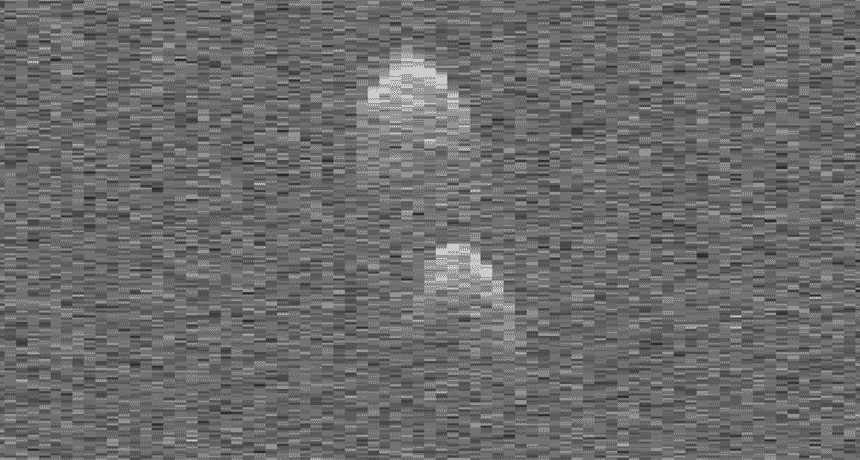 Astronomy
AstronomyAsteroid Day is a chance to learn about space and plan for disaster
Asteroid Day on June 30 tries to raise awareness about the hazards of an asteroid impact and what we could do to stop it.
-
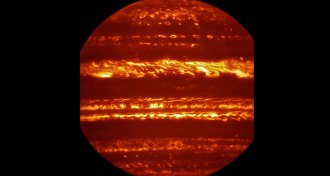 Planetary Science
Planetary ScienceJupiter shows off its infrared colors
Jupiter glows with infrared light in new images taken in preparation for the July 4 arrival of the Juno spacecraft.
-
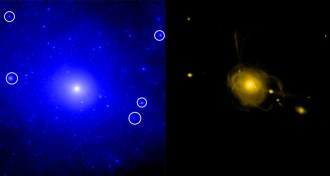 Astronomy
AstronomyPossible perp found in mystery of Milky Way’s missing galaxy pals
Billions of years of supernovas could explain why galaxies like the Milky Way have so few tiny companions and why those companions have so little mass.
-
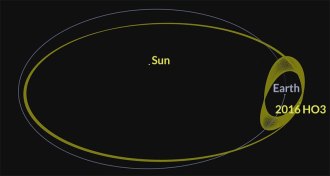 Planetary Science
Planetary ScienceEarth has a tiny tagalong, and no, it’s not a moon
Asteroid 2016 HO3 is a quasisatellite of Earth — orbiting the sun while never wandering far from our planet.
-
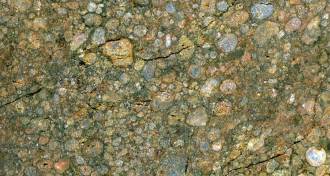 Planetary Science
Planetary ScienceAncient meteorite granules still mystify scientists
Shock waves might have formed the oldest solid fragments in the solar system, though interplanetary lightning isn’t entirely off the table.
-
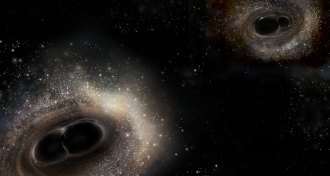 Physics
PhysicsMore events needed to pin down gravitational waves backstory
As more black hole collisions are found, researchers hope to piece together how and where these destructive duos form.
-
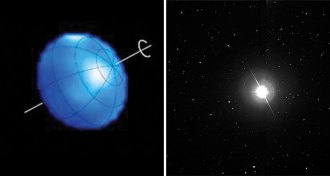 Astronomy
AstronomyBulging stars mess with planet’s seasons
On planets orbiting rapidly rotating stars, the seasons can get a little strange.
-
 Space
SpaceReaders weigh in on ET and the meaning of life
Reader feedback from the June 25, 2016, issue of Science News
-
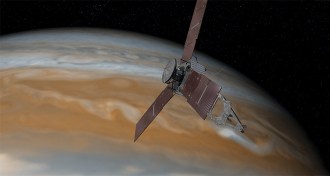 Planetary Science
Planetary ScienceJuno is closing in on Jupiter
After 5 years of travel, Juno will soon reach Jupiter and begin its up close investigations of the giant planet.
-
 Planetary Science
Planetary ScienceThe 43-year history of journeys to Jupiter, in one graph
With the arrival of Juno, nine spacecraft will have flown past or orbited Jupiter over the last 43 years.